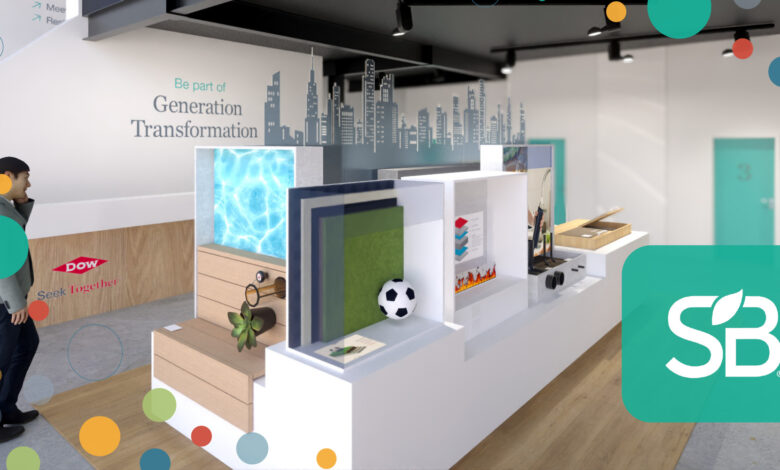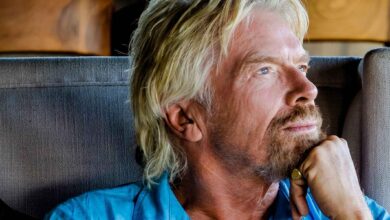Plastics, Progress and Opportunity at K 2025

The plastics industry stands at a defining crossroads.
Public
and regulatory
pressure
around addressing plastic
pollution
is intensifying; yet the unique advantages of plastics — from reducing food
spoilage to enabling lightweight electric vehicles — make the material important
to a more sustainable, low-carbon future.
That makes K 2025 — the world’s leading trade show
for plastics and rubber, held every three years in Düsseldorf, Germany — a
critical stage for the industry to highlight progress and leadership. This
year’s theme, “The Power of Plastics,” is a timely call for the plastics
value chain to continue to come together to demonstrate how the industry can
drive positive change by aligning innovation, policy,
design and alternative
materials.
“The industry now has a crucial opportunity to inspire new thinking by
showcasing its top circular and low-carbon innovations — reminding the world of
the indispensable role that plastics play in enabling more sustainable ways of
living,” says Stephanie Kalil,
Commercial Vice President for Packaging & Specialty Plastics, EMEA at
Dow.
This is the vision behind Dow’s presence at K 2025. Under the banner,
“Generation Transformation,” the company is approaching the event as a
platform for collaboration and innovation — a showcase for how the industry is
reinventing itself for a more sustainable future. Instead of traditional product
displays, Dow will offer visitors an experiential space to explore sustainable,
high-performance innovations in settings of everyday life: Store shelves stocked
with products wrapped in circular
packaging,
an apparel section featuring shoes made from recycled materials, and a mobility
exhibit where visitors can see and feel next-gen materials in automotive
seating.
These interactive spaces are designed to bring to life the role of plastics in
enabling lower-carbon, circular innovations.
The next step: Bio-based and circular innovations in footwear and fashion
Join us Tuesday, Oct. 14, as leaders from Modern Meadow, Marchon Eyewear and Twelve share the latest developments in low-impact materials, closed-loop business models, and scalable strategies to reduce waste while delighting consumers – at SB’25 San Diego.
“At the heart of Generation Transformation is a belief that the plastics
industry must move beyond business-as-usual to purpose-led innovation — where
sustainability isn’t a side note but the starting point for reimagining
materials, systems and impact,” says Giorgia
Minelli, Dow’s Senior Group
Marketing Director for Packaging & Specialty Plastics, EMEA.
Forward-thinking business leaders understand that sustainability is more than a
license to operate; it’s a competitive advantage. K 2025 offers a valuable
moment to address key systemic challenges through collaborative, cross-sector
solutions.
1. Scaling circularity
Circularity at scale is a work in progress. That’s
why Dow is partnering across the value chain to develop new circular models
through innovative materials and business approaches. Examples of this include
Dow’s work to give waste a second life with footwear
brands
including Crocs, and partners such as RKW
Group
on sustainable collation shrink films, and Brivaplast and
TecnoGi
to turn perfume caps into new materials for use in luxury footwear and leather
goods.
2. Decarbonizing transport
Plastics’ durability, versatility and light
weight offer a path forward for hard-to-decarbonize sectors such as automotive
and construction. At K 2025, Dow will showcase
elastomers for car seat
cushions that support recyclability, reduce both weight and emissions, and
support customers designing for policy compliance — such as end-of-life vehicle
regulation.
3. Navigating regulatory change
With policies including the EU’s
Packaging and Packaging Waste Regulation
(PPWR)
on the horizon, companies are responding by designing compliant circular
packaging solutions. For example, at K 2025 Dow will share the first-ever
cartons incorporating recycled and renewable
polymers
— a collaboration between Dow,
Elopak, and Orkla Home & Personal
Care.
Coated with a thin layer of
ISCC+-certified
circular polyethylene from post-consumer waste and bio-circular polymers sourced
from vegetable-based waste — such as used cooking oil — this lower-carbon
solution delivers the same high performance and product protection as
traditional containers while helping companies prepare for the EU’s 2030
deadline for recycled-plastic-content targets.
As Emilie Olderskog,
Director of Sustainability at Elopak, explains: “Elopak cartons are already a
sustainable packaging choice. The inclusion of circular polyethylene helps to
reduce the amount of plastic that ends up in landfill, supporting the transition
to a circular economy where recycled waste materials replace virgin
materials.”
Every solution Dow plans to showcase at K 2025 is tied to at least one key
sustainability attribute without compromising quality or performance — whether
it’s designed for recyclability, contributes to emissions reduction, or
incorporates circular feedstocks.
Visitors will also have the opportunity to engage with Dow experts and
experience a demonstration by Pack
Studios,
Dow’s go-to development and testing facility, to show how brands and customers
can experiment with different types of packaging without disrupting their own
production lines.
Dow welcomes show visitors to its exhibition space to explore how plastics can
power positive change. Explore more of Dow’s K 2025 Generation
Transformation.
Source link




